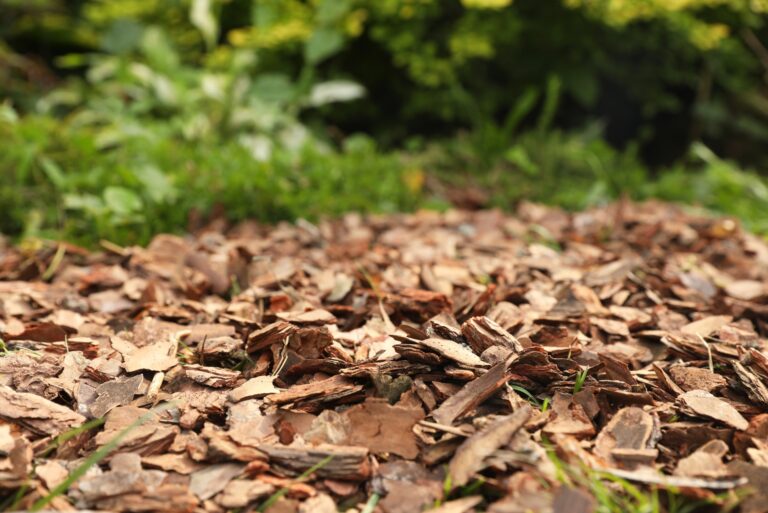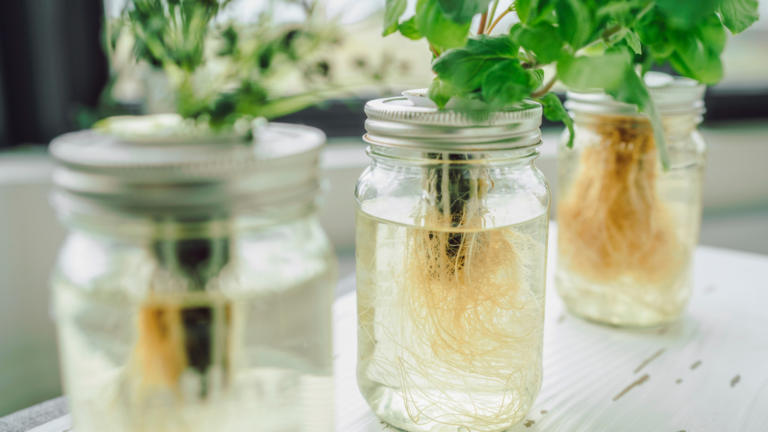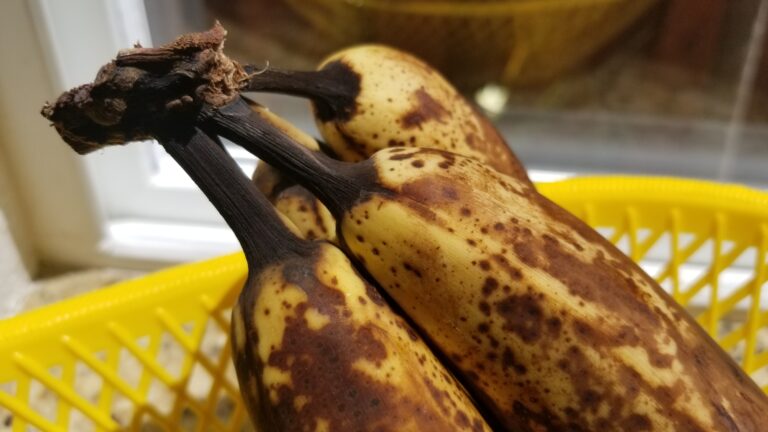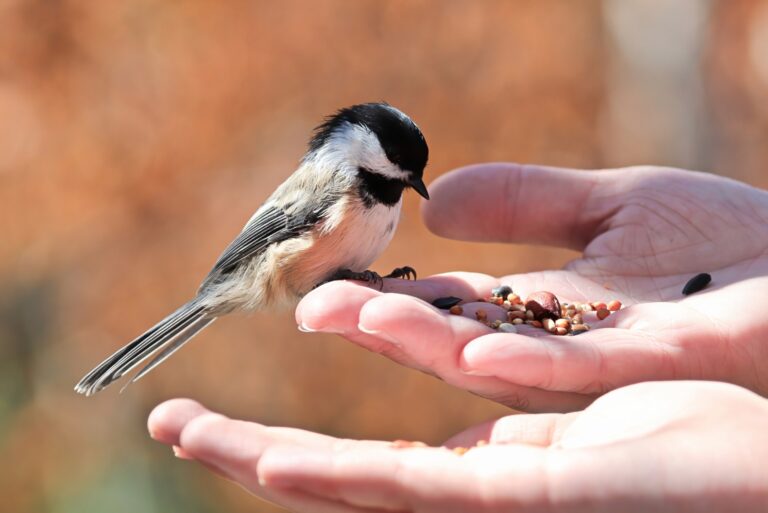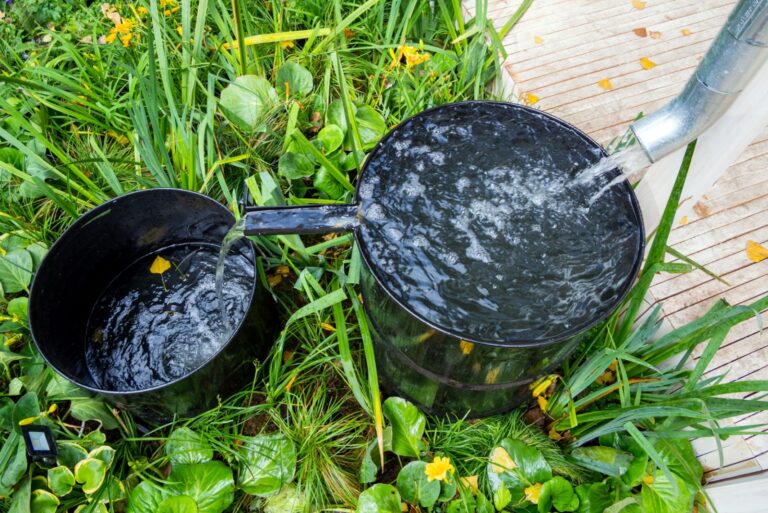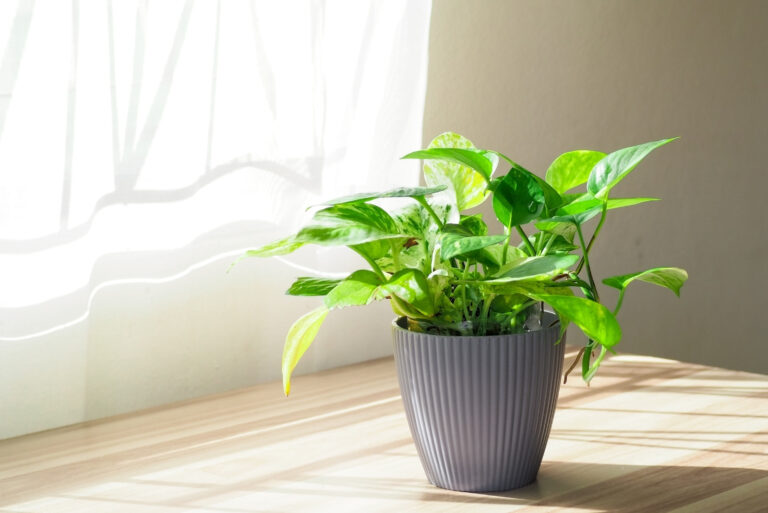15 Signs You’re Using Too Much Mulch In Your Garden (And What To Do About It)
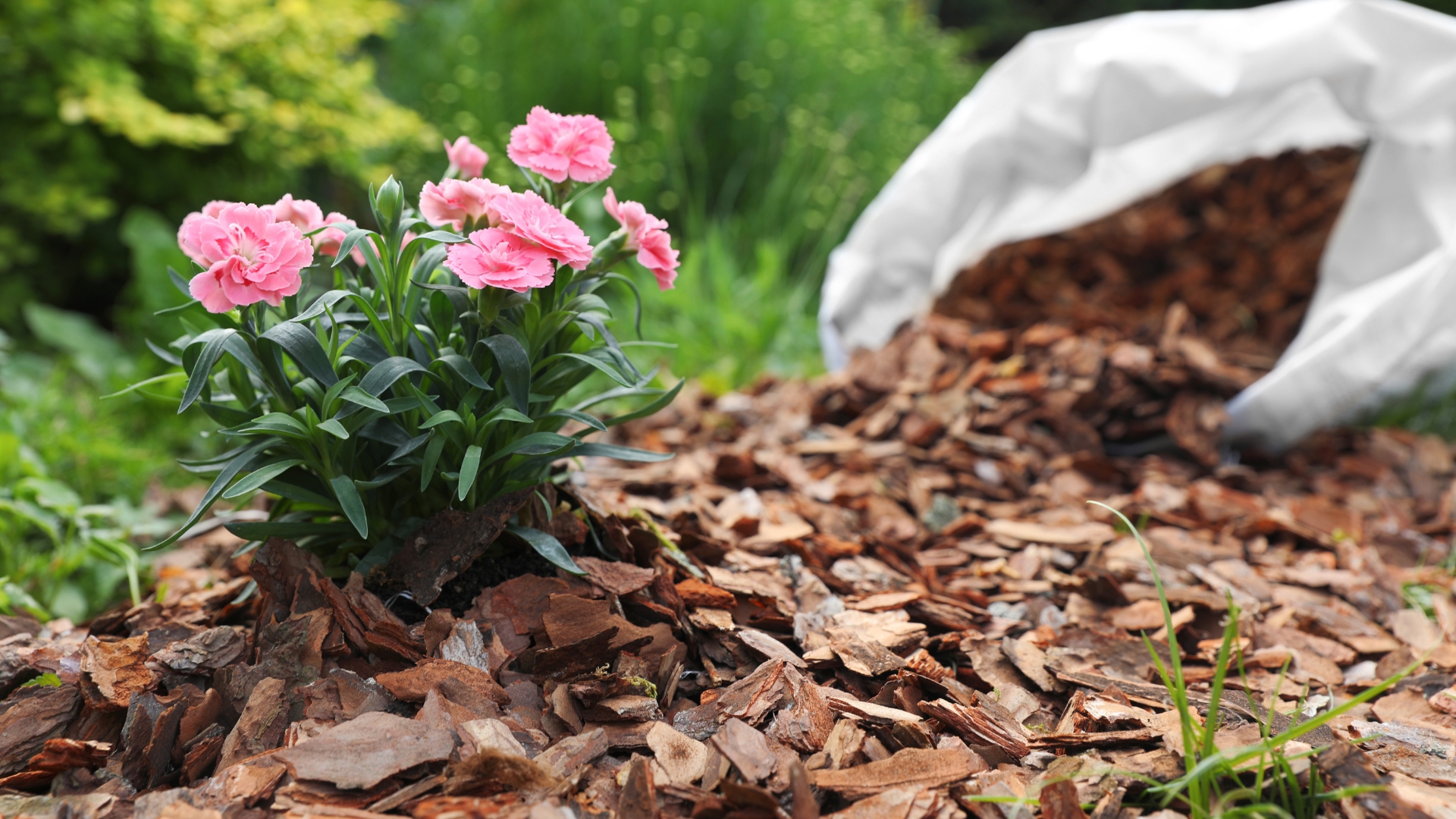
Mulch is a gardener’s best friend, but too much of it can cause more harm than good. If you’ve been piling it on, you might notice a few telltale signs that it’s time to scale back.
Over-mulching can suffocate your plants, attract pests, and even cause some serious root issues. Don’t worry, though — I’ve got some tips on how to fix the problem and get your garden back on track.
Let’s take a look at these 15 signs and what you can do to restore balance in your backyard!
1. Mulch Volcanoes Around Trees
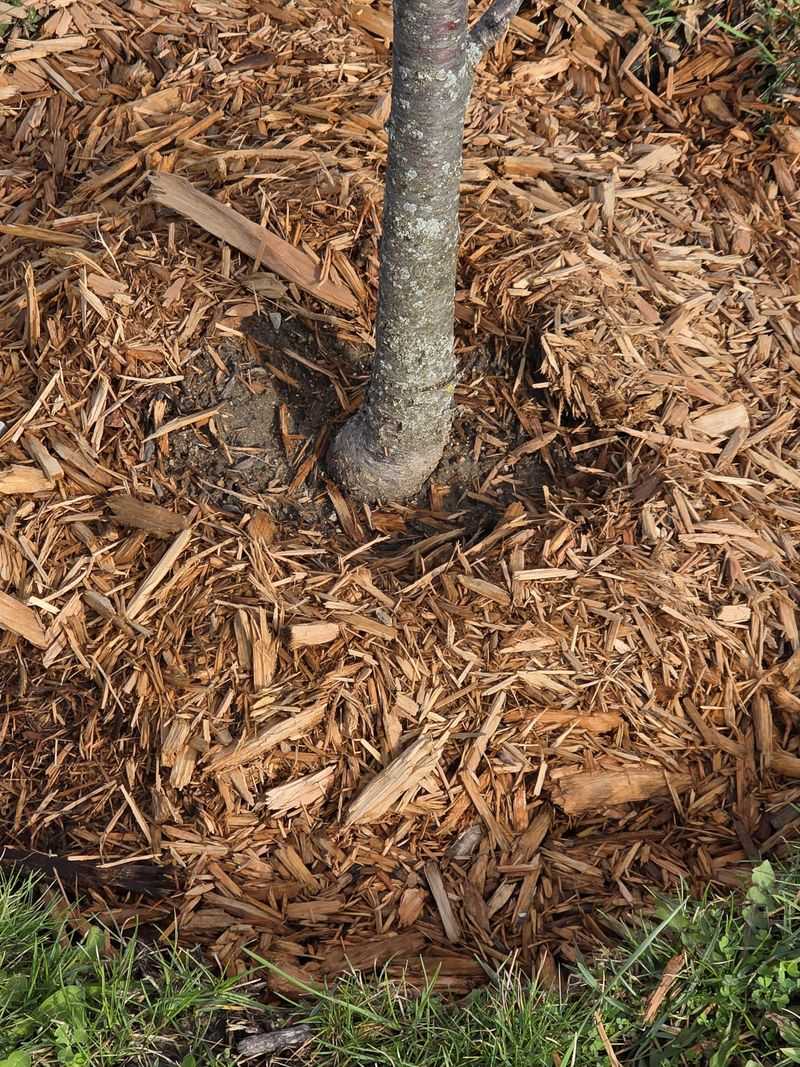
When your trees look like they’ve sprouted their own mountain ranges, it’s time to pause. Those mulch volcanoes might seem protective, but they’re suffocating your tree’s base. It’s like wrapping a scarf way too tight around your neck. Trees need to breathe too!
Excessive mulch can trap moisture against the trunk, fostering rot and inviting pests. Gradually, this mulch mountain can even encourage roots to grow into it, leading to unstable trees. Have you noticed any wobbly trunks lately? It might be time to flatten those peaks.
2. Smothered Flower Beds
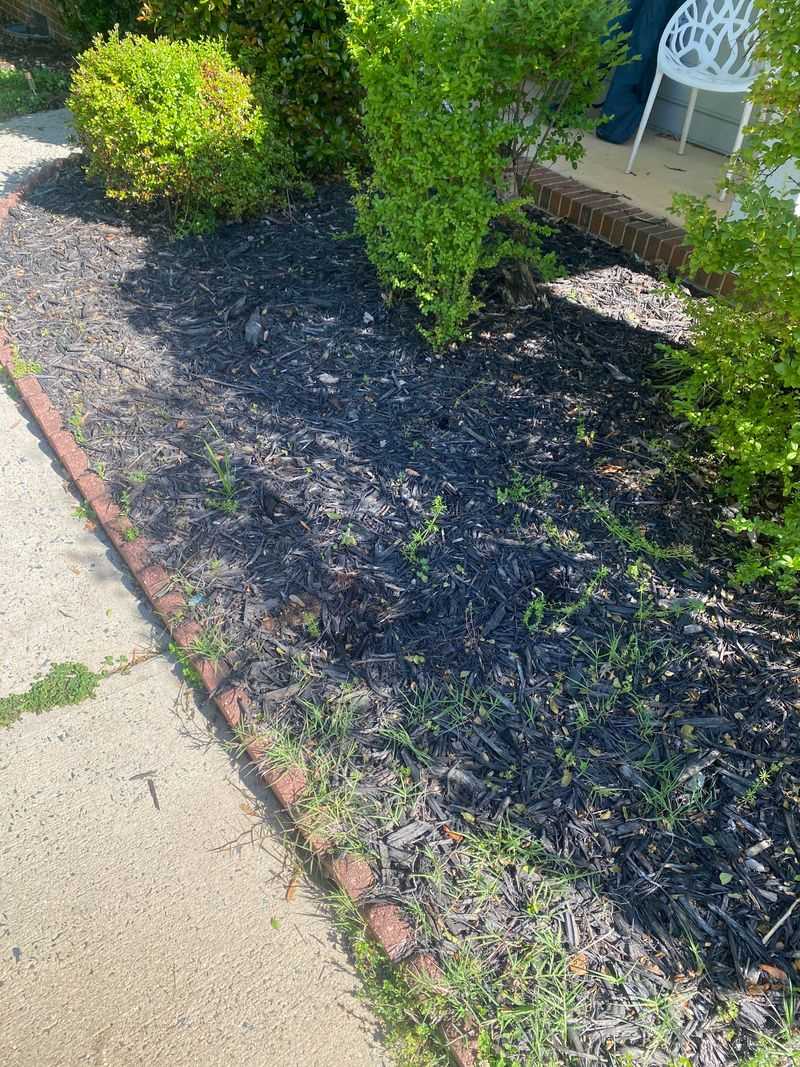
Imagine tucking in your flowers so snugly that they can’t move. Sounds cozy, but not great for flowers. It’s like putting a heavy blanket on a sunny day. Too much mulch can stifle their growth and keep them from basking in the sun.
Your flowers may start to look a bit pale or droopy, yearning for light and air. If your flower beds seem more like mulch beds with a few floral accents, you might want to give them a little breathing room. Let those blooms shine!
3. Persistent Weed Problem
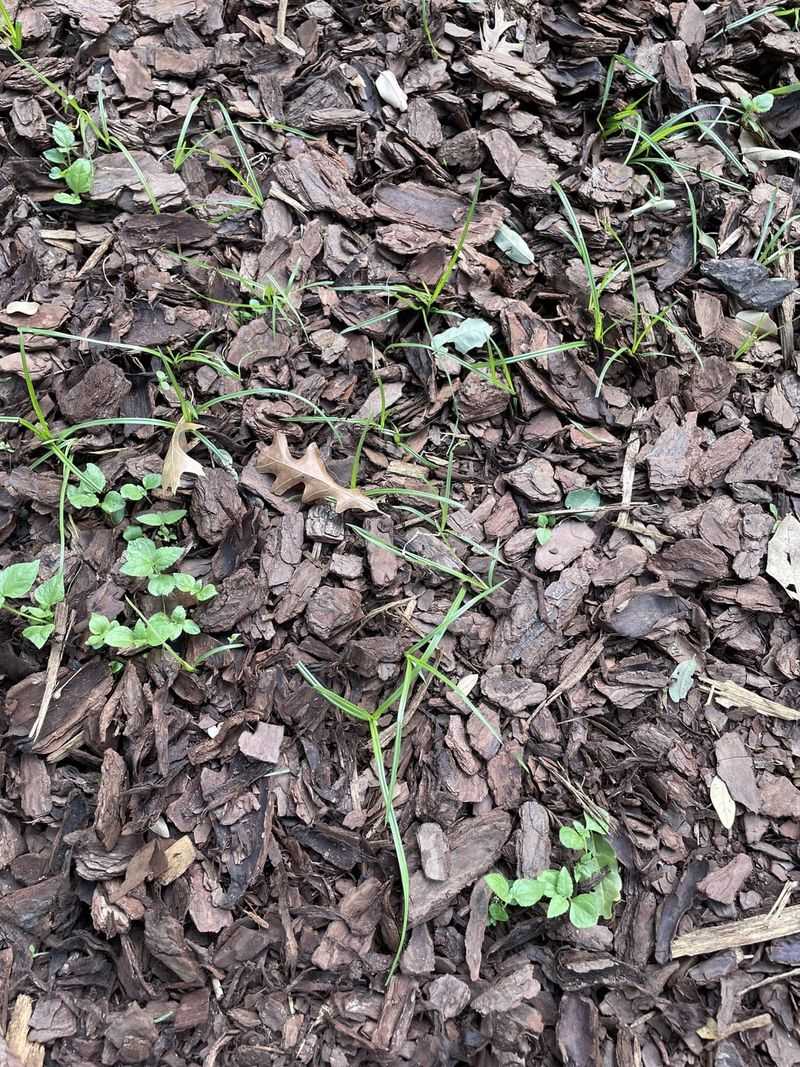
You laid down all that mulch, yet the weeds still seem to be on a relentless mission. It’s like inviting someone over to keep the peace and they decide to throw a party instead. Mulch, when too thick, can create an inviting environment for weeds.
They sneak in through gaps or thrive in the overly moist soil. If you’re finding more weeds than you bargained for, it might be a sign you need to reevaluate your mulching strategy. Sometimes less is more, even for the weeds!
4. Mushroom Invasion
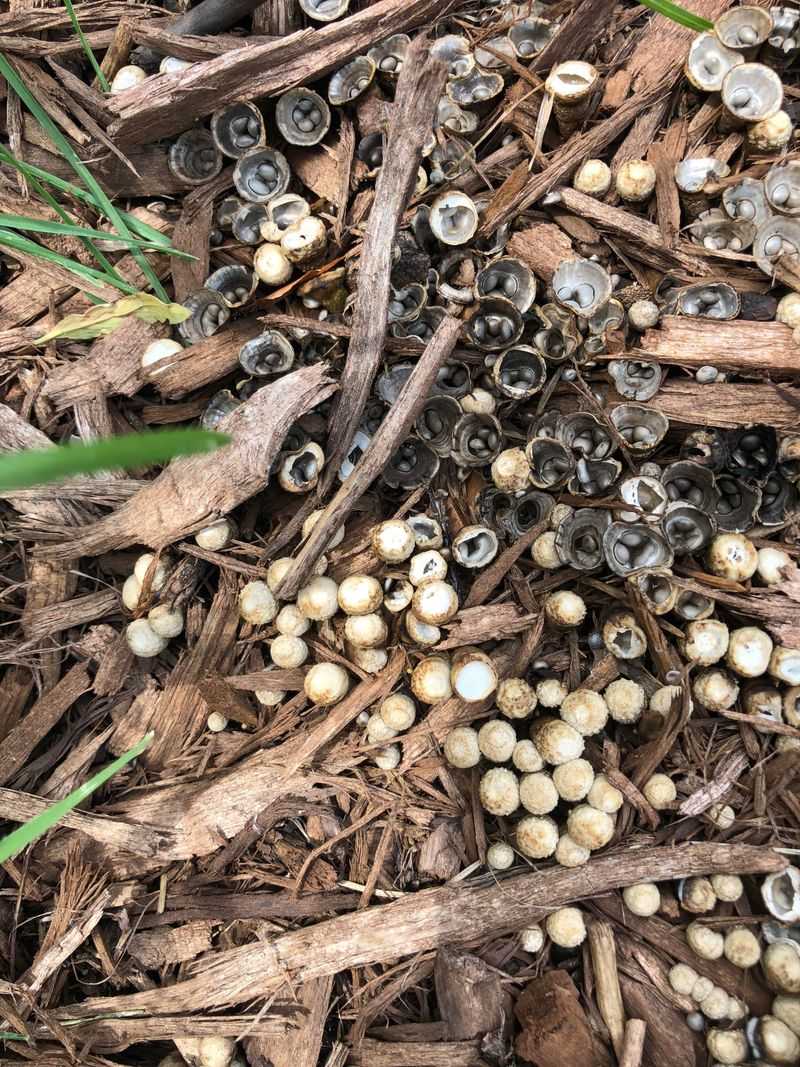
Mushrooms in your garden can feel unexpected, like guests who show up uninvited. They sprout up when conditions are moist and rich in organic material—hello, excessive mulch! If your garden starts looking like a fungi festival, you may have overdone it.
While not all mushrooms are harmful, their presence can indicate too much moisture being trapped. This damp environment can also encourage rot in plants. Keeping your mulch to a moderate depth can help keep the mushrooms at bay and your plants happy.
5. Soggy Soil Syndrome
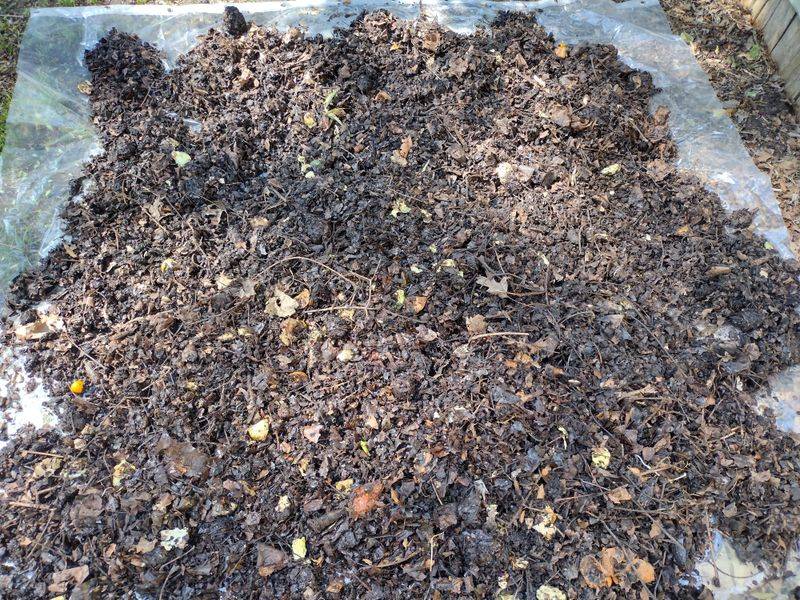
Have you ever stepped into your garden and felt like you were walking on a sponge? That could be soggy soil syndrome, courtesy of too much mulch. Excessive mulch traps water, failing to let the soil underneath breathe.
Plants end up sitting in waterlogged earth, which can lead to root rot and other diseases. If your shoes get a little squelchy when you garden, it might be time to pull back some of that mulch and let things dry out a bit. Your plants will thank you.
6. Pest Paradise
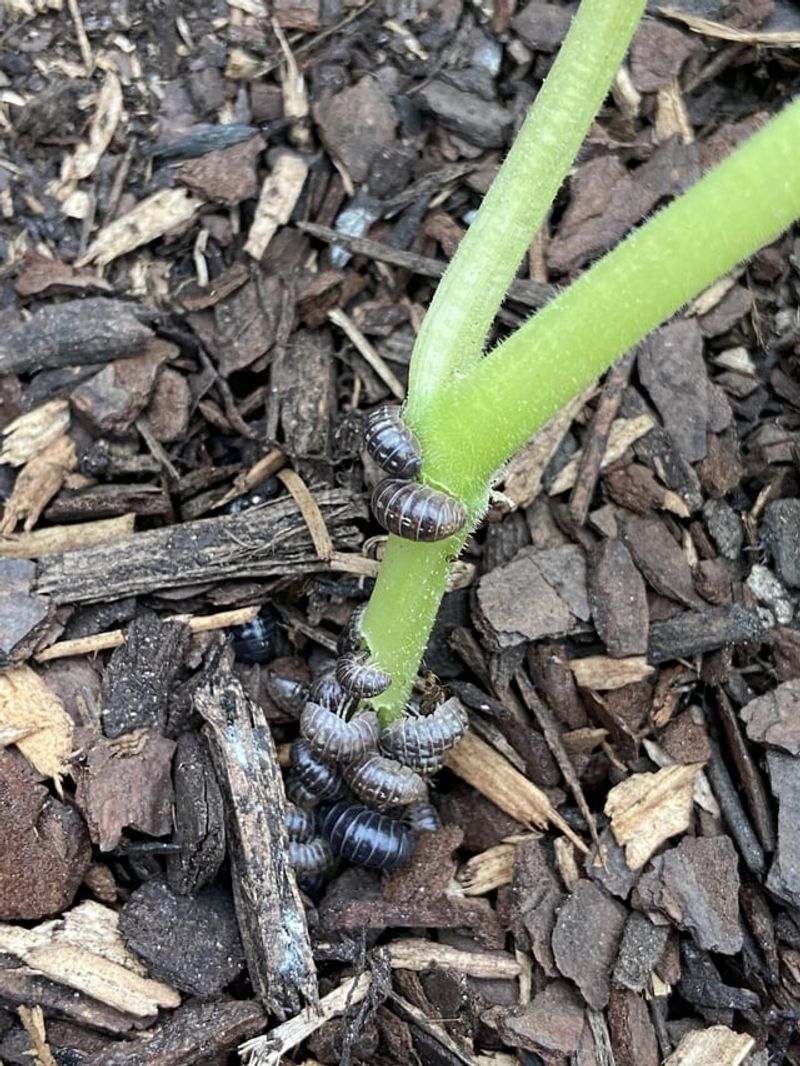
Ever notice the neighborhood pests throwing a block party in your garden? With all that mulch, you might have created the perfect pest paradise. Thick layers keep the environment moist and cozy, just how pests like it.
Insects like earwigs, snails, and slugs thrive in these conditions. If your plants are getting nibbled more than usual, it’s possible your mulch is housing more guests than you’d like. Consider thinning it out to send those pests packing.
7. Crusty Mulch Surface
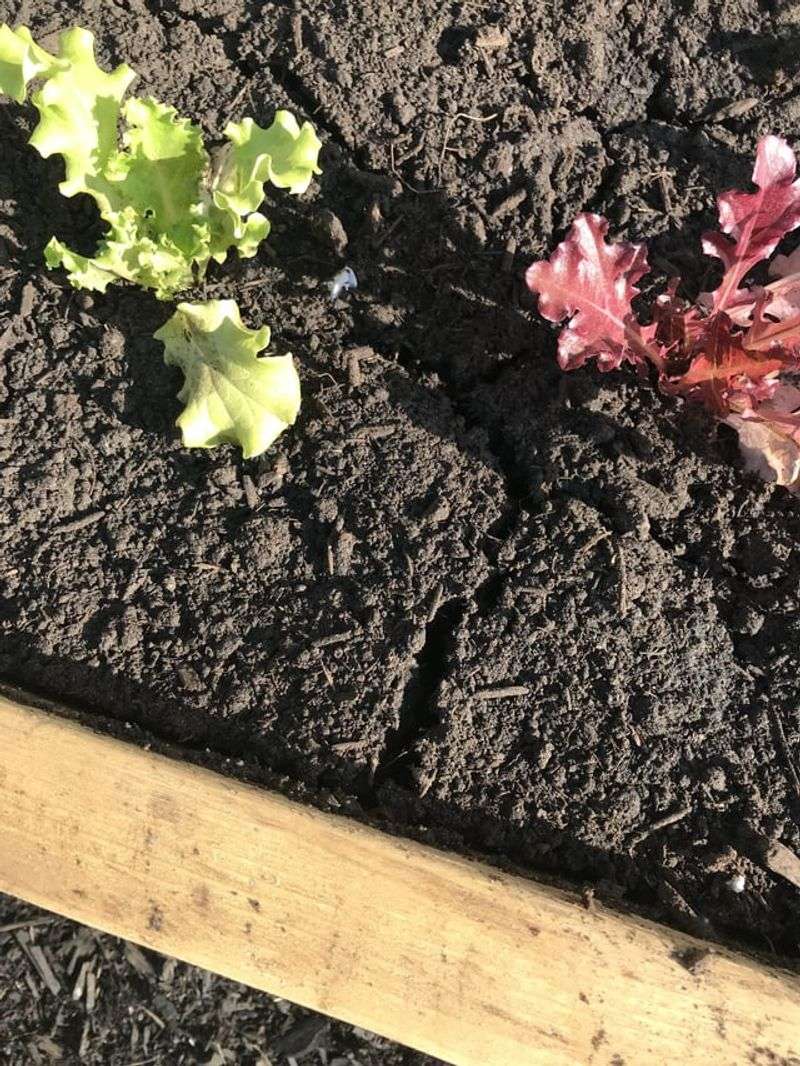
A crusty surface might work for pies, but not for your mulch. If it’s so thick that it’s forming an impenetrable crust, that’s a red flag. This can prevent water and nutrients from reaching the soil beneath, leaving your plants hungry and thirsty.
Break apart that crust with a rake or reduce the mulch layers to help your garden soak up the good stuff. When mulch starts acting like a barrier instead of a helper, it’s time for a change. Keep your garden’s plate full and happy.
8. Root Rot Concerns
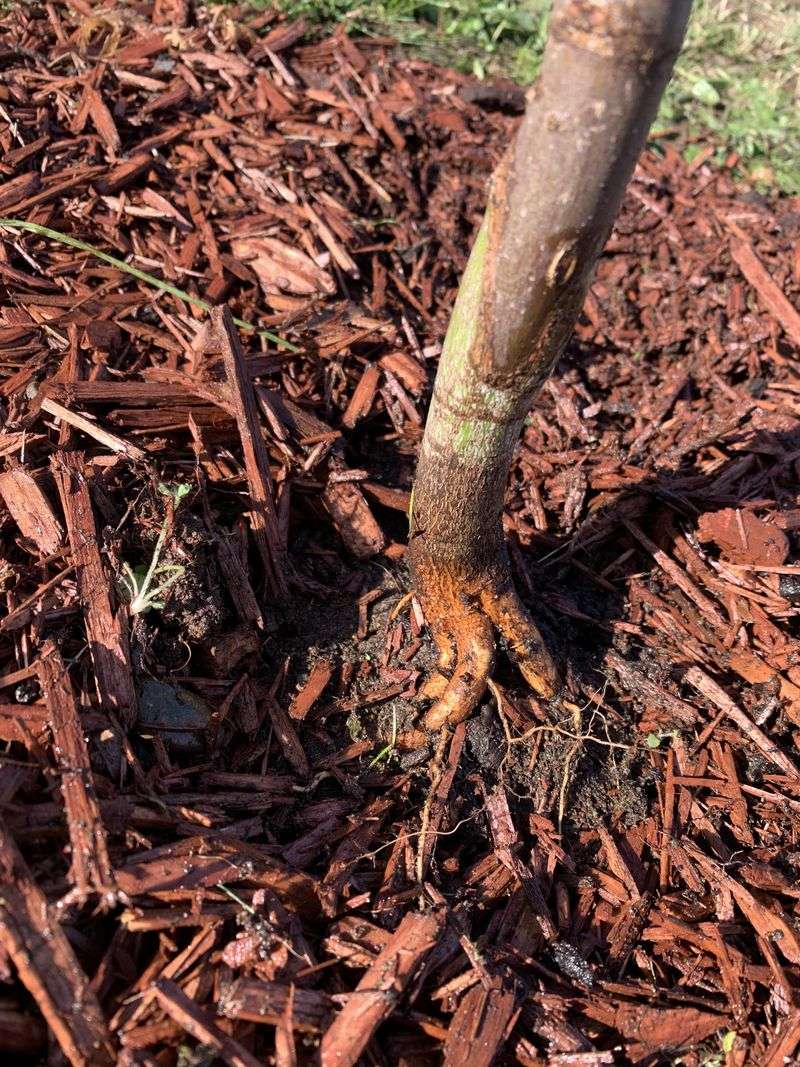
Root rot is like the silent villain in a garden story. It sneaks up when mulch is too thick, trapping excess moisture that suffocates the roots. Your plants may look sickly or wilted, even with all that care.
When roots can’t breathe, they can’t thrive. Check the base of your plants for any signs of rot and consider reducing the mulch layer. Giving roots room to breathe ensures your garden can flourish without hidden troubles lurking beneath the surface.
9. Mulch Compaction
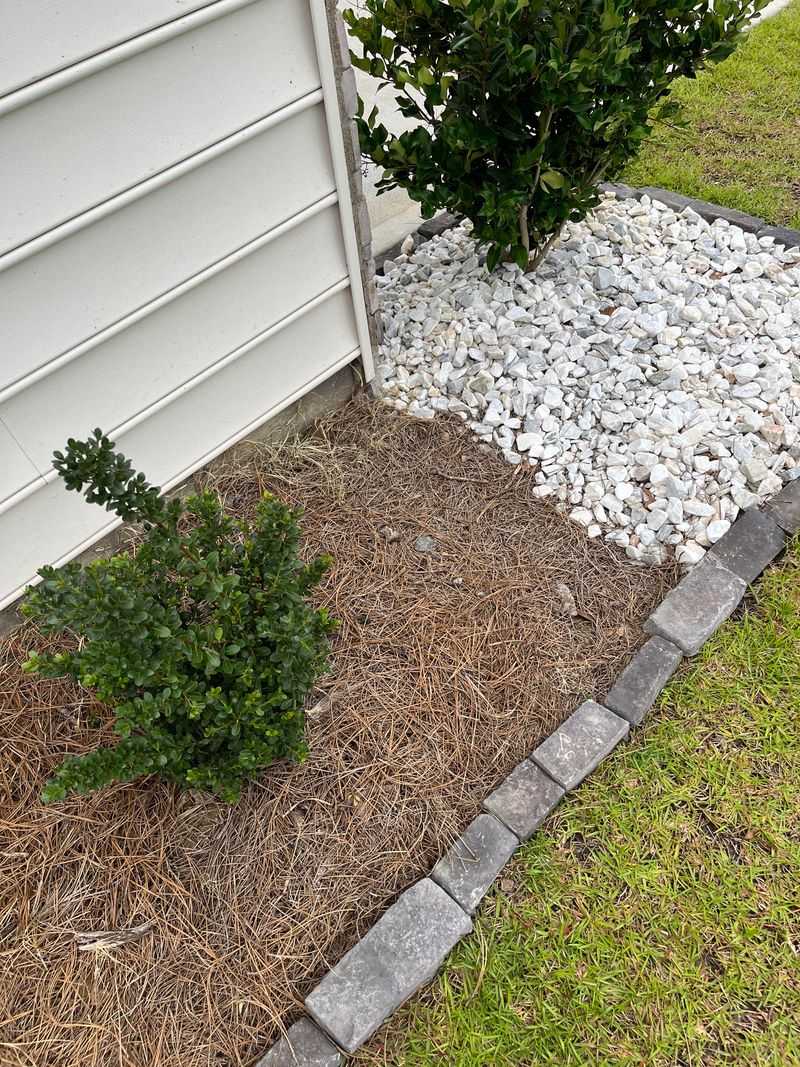
When mulch becomes more like a dense carpet than a fluffy blanket, compaction might be the culprit. Compact mulch can restrict air flow and water penetration, leaving your soil gasping for air.
This is especially common with thick, heavy layers that press down over time. If your mulch feels more like a solid surface than a protective covering, it’s time to fluff it up or reduce the layers. A little aeration goes a long way in helping your garden breathe.
10. Anaerobic Conditions
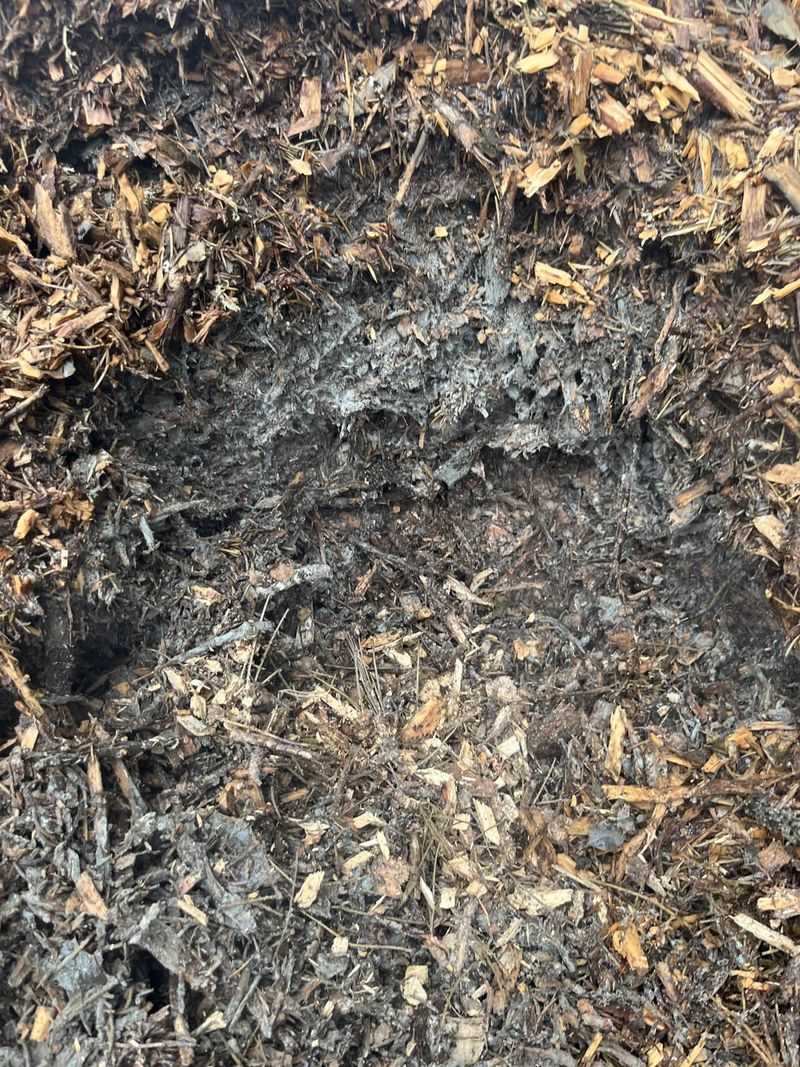
Anaerobic conditions are like the party crashers of the gardening world. They show up when soil can’t get enough oxygen, often due to thick mulch. Stunted growth, foul smells, and unhappy plants might greet you in such scenarios.
Without adequate air, beneficial microbes struggle, and roots suffocate. Peeling back the layers can help restore balance and bring life back to your garden. Keep it light and airy—your plants prefer a lively atmosphere over a stuffy one!
11. Mulch Odor Issues
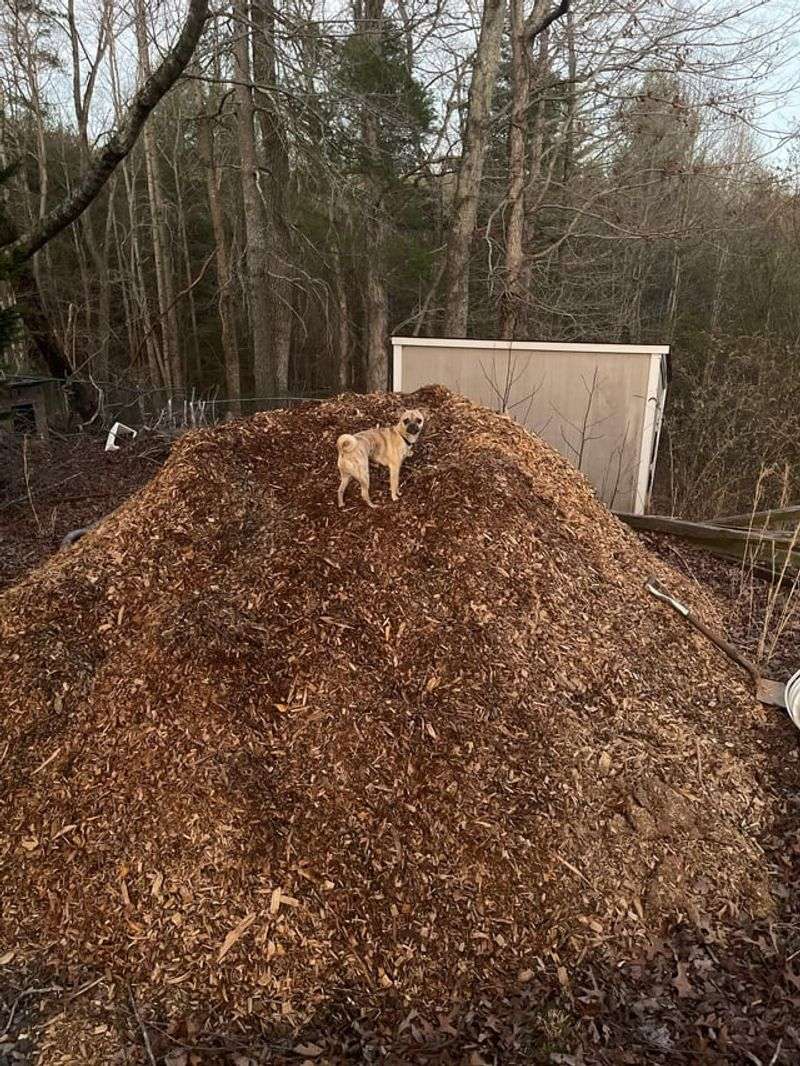
A sour, musty scent wafting from your garden isn’t a delightful surprise. It’s often a sign of mulch-related issues. Thick mulch can lead to moisture build-up, causing anaerobic decomposition and unpleasant smells.
If your garden smells more like a damp basement than fresh earth, it’s time to reassess the mulch situation. By reducing the thickness, you can help air things out and eliminate those odors. Let your garden smell as fresh as the flowers it grows!
12. Overly Acidic Soil
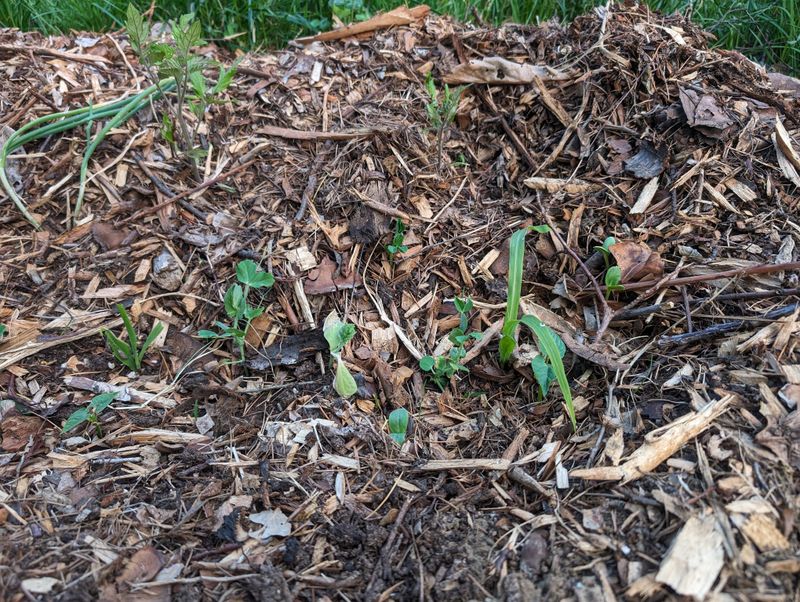
Is your garden not as green as it should be? Excess mulch, especially acidic types like pine bark, can lower soil pH to unfriendly levels. Plants start showing signs of stress, like yellowing leaves or stunted growth.
Checking your soil’s pH can reveal if it’s become too acidic. Reducing the mulch layer and using neutralizing agents can bring harmony back to your garden’s ecosystem. Just like Goldilocks, your soil prefers the pH to be just right.
13. Poor Plant Growth
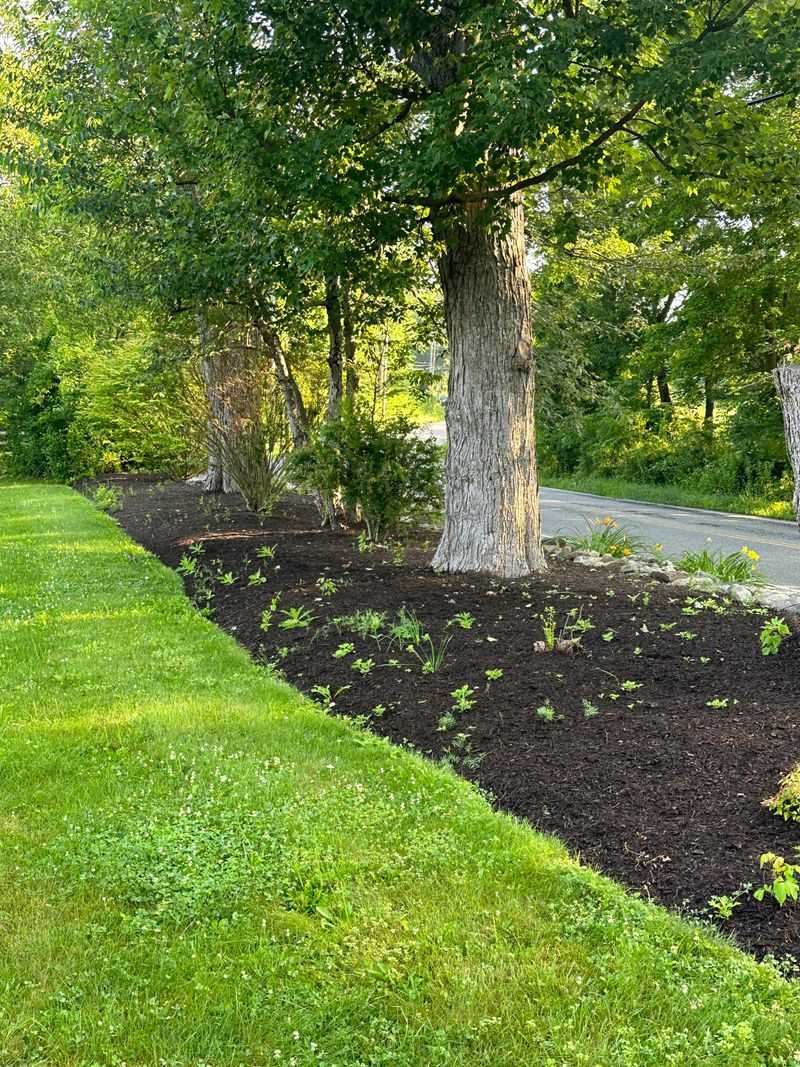
When your plants seem to be in slow motion, the mulch might be to blame. Too much mulch can act like a weight, stifling growth and blocking sunlight. It’s as if your plants are living in a perpetual shadow.
This can lead to leggy growth and weak plants that struggle to thrive. If your plants look like they’re reaching but not quite succeeding, consider easing up on the mulch. Sometimes, a little freedom is all they need to grow strong and tall.
14. Slowed Decomposition
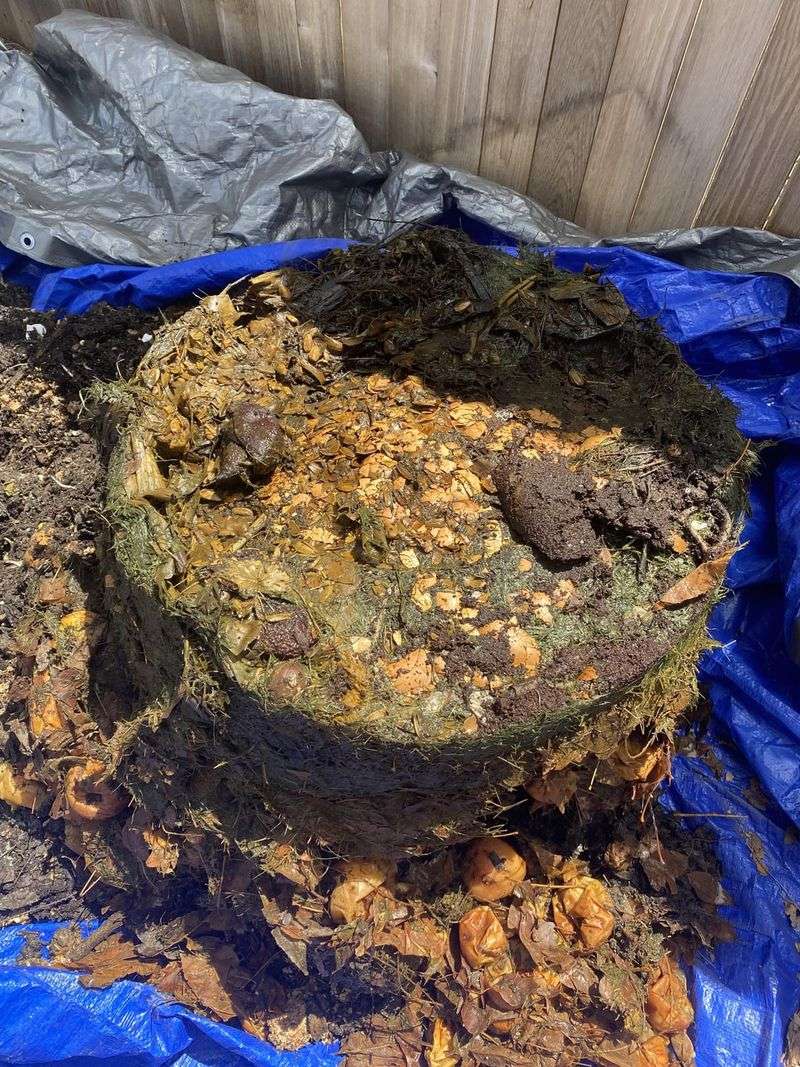
Mulch should gradually break down and enrich the soil, but sometimes it overstays its welcome. When decomposition slows, it’s a sign there’s too much of it. Your mulch might look the same season after season, refusing to integrate with the soil.
This stagnation can prevent nutrients from being released and limit soil health. By turning the mulch or reducing its depth, you can encourage proper breakdown and nutrient cycling. Keep the circle of life turning in your garden beds.
15. Nutrient Deficiency Symptoms
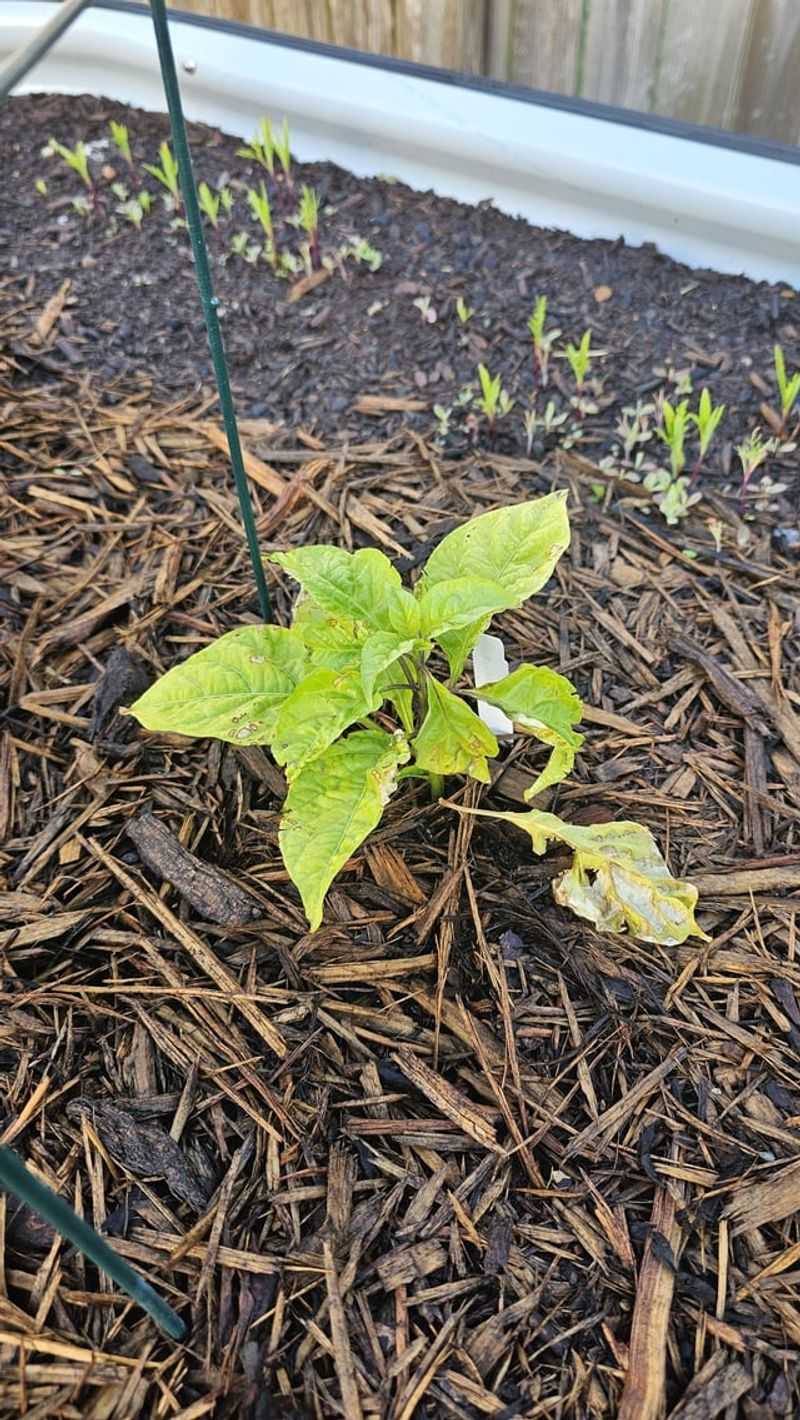
Malnourished plants can often be traced back to excessive mulch. When mulch is too thick, it can lock nutrients away, out of reach for roots. Your plants might show their displeasure with yellowing leaves or weak stems.
Testing your soil can reveal what’s missing. Cutting back on mulch allows nutrients to flow back into the soil, supporting plant health and vigor. Your plants deserve a nutrient-rich diet, free from mulch-imposed restrictions.

